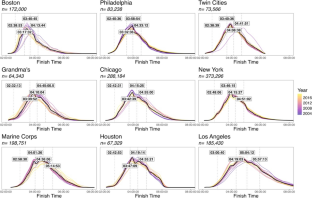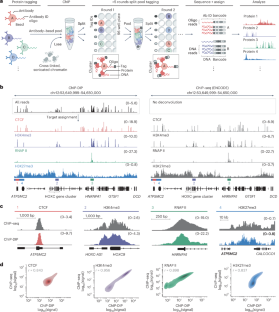2024-12-18 ブラウン大学
<関連情報>
- https://www.brown.edu/news/2024-12-18/marathon-air-pollution
- https://link.springer.com/article/10.1007/s40279-024-02160-8
排気ガスで走る:2003年から2019年までの米国主要マラソン9大会における微粒子物質の完走時間への影響の分析 Running on Fumes: An Analysis of Fine Particulate Matter’s Impact on Finish Times in Nine Major US Marathons, 2003–2019
Elvira S. Fleury,Gray S. Bittker,Allan C. Just & Joseph M. Braun
Sports Medicine Published:18 December 2024
DOI:https://doi.org/10.1007/s40279-024-02160-8

Abstract
Background
Under controlled conditions and in some observational studies of runners, airborne fine particulate matter smaller than 2.5 microns in diameter (PM2.5) is associated with exercise performance decrements.
Objective
To assess the association between event-day fine particulate matter air pollution (PM2.5) and marathon finish times.
Methods
Using a spatiotemporal machine-learning model, we estimated event-day racecourse-averaged PM2.5 concentrations for nine major US marathons (2003–2019). We obtained 1,506,137 male and 1,058,674 female finish times from 140 event-years of public marathon data. We used linear and quantile mixed models to estimate the mean and percentile-specific year and heat index-adjusted effect of 1 µg/m3 higher event-day racecourse-averaged PM2.5 on marathon finish times in sex-stratified samples.
Results
Analyzing all finish times, 1 µg/m3 higher race-day PM2.5 was associated with 32-s slower average finish times among men (95% confidence limits (CL) 30, 33 s) and 25-s slower average finish times among women (95% CL 23, 27 s). Quantile-specific associations of event-day PM2.5 with finish times were larger for faster-than-median finishers. While PM2.5 was generally associated with slower finish times in single-event models, there was effect heterogeneity, and most 95% confidence intervals included the null.
Conclusion
Greater race-day PM2.5 was associated with slower average marathon finish times, with more pronounced effects in faster-than-median runners. While more research is needed to characterize effect heterogeneity across the performance spectrum, these findings show the impact of PM2.5 on marathon performance and the importance of considering data from multiple competitions when estimating PM2.5 effects from event-level data.


